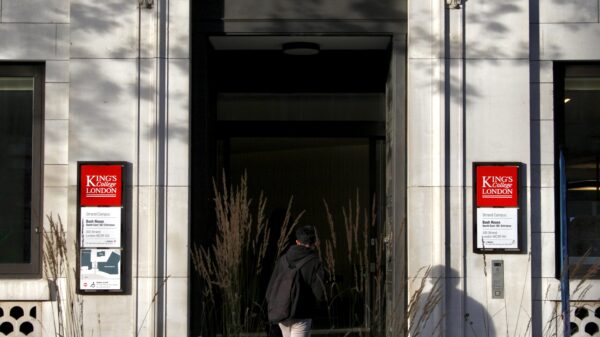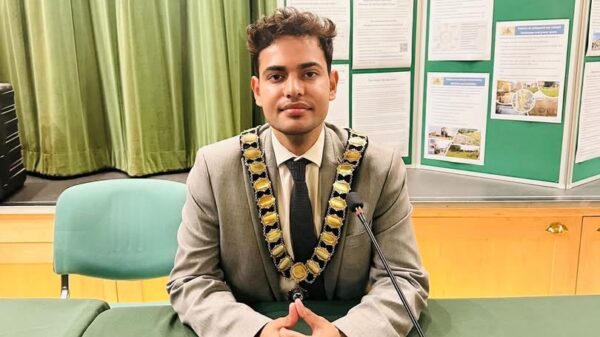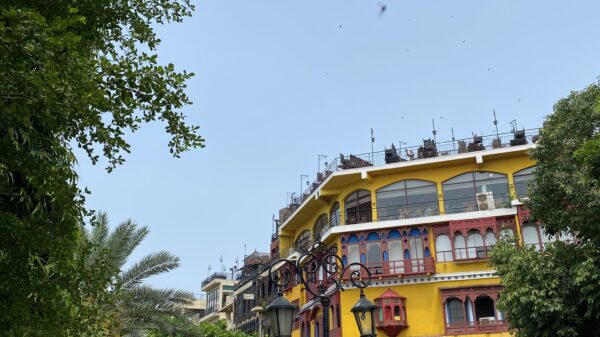What a Childhood Visit to Pakistan Taught Me About Grief, Hope, and the Stories We Still Need to Tell
Arrival: A Country I Didn’t Know
The rain fell hard the day we arrived in Pakistan. Brown water pooled along the edge of the road, gathering between the pavement and the dust. I watched from the backseat as men crouched beside it, cupping their hands and drinking.
I was five years old. Seven months earlier, my mother had died. And now, in a country I did not know, my father was preparing to marry someone new.
At a petrol station, our car stopped. My brother and I sat quietly while the adults went inside. A man came up to the window and knocked, again and again, asking for money. His face was lined and wet from the rain. He looked straight at me and said, beta, kuch paisay de do, child, please give me some money.
I remember staring, frozen. Not with fear, but with confusion. He was not angry, just tired. His voice did not rise. It sank.
Back home in England, I had been sheltered. Here, suffering was not hidden. It stood in front of you and looked you in the eye.
Vignettes: Fragments That Stayed
The rest of that trip lives in fragments, moments that did not make sense to me then but stayed anyway.
I remember my brother getting food poisoning so bad he could barely stand. Another time, he had a nosebleed that would not stop. We went to a hospital, and I sat quietly while the adults panicked. I did not speak. I just waited. Still and confused.
In the city, we stopped at a McDonald’s, but before we could go in, we had to pass through a metal detector. It was 2009, during a wave of terrorist attacks across Pakistan, though I did not know that at the time. Outside the shops, men sat on low stools, their fully automatic rifles resting across their laps like handbags. No one looked twice.
I remember walking up a long hill in my stepmother’s village for something to do with the wedding. I was tired, dragging my feet, not understanding why we were climbing or where we were going. Outside her house, chickens wandered across dry ground, pecking aimlessly. I did not feel afraid. Just quiet. Watching.
There were other memories too. I saw a parrot talk for the first time at my uncle’s house. We had KFC more than once. I remember thinking it was the best I had ever tasted. Even now, I still say KFC in Pakistan is better. I was excited in those moments, and somewhere in that excitement was a small feeling that maybe I was going to have a mum again. At five, that was something to be happy about. But I also remember a thought drifting through my head, like a whisper. Where is my mum. It did not last long, but it landed.
What I also remember clearly is my uncles, tall six-foot-something giants, tossing me into the air again and again. I was laughing so hard I could not breathe, begging them to do it one more time. That was joy. Pure and unfiltered.
I did not fully understand grief or marriage or what any of it meant. I did not understand poverty or pain or the quiet unease I carried. But I felt things. And looking back now, I see how those feelings, those contradictions, shaped something in me.
Even then, joy did not disappear just because loss had happened. And suffering did not wait its turn. Everything lived alongside everything else.
Grief and Joy: Holding Both Truths
Looking back now, I do not think I understood what I was living through. Not in the way adults would name it: bereavement, poverty, instability, transition. But something in me absorbed it. The confusion, the quiet moments, the flashes of joy that did not feel like they were meant to be there, and yet were.
What I have come to realise over time is that those small moments of light mattered more than I knew. They did not erase the darkness. They did not fix anything. But they lived beside it. That is what stayed with me.
Even at five, without fully grasping death or my father’s remarriage, I still felt something good when I saw the parrot talk or tasted that KFC or laughed uncontrollably while being thrown in the air. Those were not distractions. They were part of the story. Somehow, they were just as real as the suffering.
And the more I reflect on it, the more I believe this. If we do not notice those moments, if we do not let them matter, they slip away. Light is fragile like that. It has to be held to stay alive. When we remember it, when we honour it, we give it a chance to grow.
I am not saying the pain was not real. It was. But the joy was real too. And maybe that is the hardest truth to carry. That the world is cruel in ways that are hard to name, but still lets in small, almost accidental glimmers of something better. Light does not wait for the right conditions. It appears quietly, briefly, but enough.
I do not romanticise the suffering I saw or the unfairness of it. It was unjust then and still is now. I was able to return to a comparatively comfortable life. Many others could not. That is what makes the light I witnessed feel even more miraculous. It existed where it had no right to. And that is why it needs to be held onto, not as a denial of the darkness, but as a quiet refusal to let it consume everything.
If we do not hold onto what is good, even when it is small, we risk forgetting it was ever there. And when we forget, we stop building toward it. That is how suffering takes hold, not just by existing, but by making us believe it is all there is.
Today’s World, and Why These Stories Matter
It is hard to ignore the pain in the world today. War, famine, climate collapse, displacement. Bombings and floods. Families reduced to numbers. Children growing up surrounded by grief and rubble. The news is constant and often unbearable. Suffering dominates the frame, and it is real.
But it is not only distant. It is here too. Cost of living pressures that leave people choosing between food and warmth. Political leaders who perform rather than lead. Public services stretched thin. Inequality growing. Division deepening. Identity hardened into weapon. People feeling more alone, more angry, more tired. The cracks run through every layer.
In all this, we are flooded with images of what is broken. But when that is all we are shown, the world begins to feel unliveable. Without contrast, without context, we forget that other things exist too.
In Gaza, I have seen videos of children smiling. Kicking footballs across broken streets. Dancing, laughing, holding their siblings. Not because life is fine, but because they are human. They are not only surviving. They are living. We should report that. We should honour that. Not to deny the tragedy, but to humanise the people living through it.
Let us not reduce people to their pain. Let us not forget that they are more than what has happened to them. Because when we strip people down to only their wounds, we stop seeing them as people at all.
And this is not only about war zones. Across every crisis, there are people carrying the weight. Aid workers delivering supplies to remote camps. Journalists documenting truth in dangerous places. Volunteers at food banks stocking shelves before the doors open. Teachers holding it together for children who are quietly breaking. Neighbours checking in. Strangers showing up. People still choosing to help, to care, to build.
There is no shortage of suffering. But there is no shortage of good either. The idea that light can live alongside darkness matters because it reflects the world as it really is. If we only tell stories of collapse, we risk forgetting the quiet acts of strength and care that persist through the wreckage, yet these moments, however fragile, still exist, and they deserve to be seen. Without them, we don’t just lose truth, we lose the hope and humanity we need to grow.

















